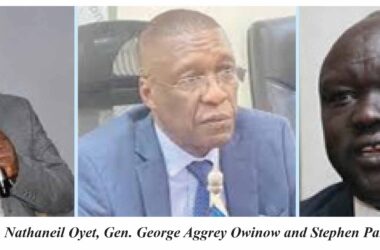By Ephraim Modi Duku Sokiri
Over the past few years, South Sudan’s economy has become progressively worse, with commodity prices increasing more times than expected.
Central Equatoria State (CES) of Chamber of Commerce, Chairperson Mr. Robert Pitia in a press conference on the economic crisis, has slammed foreign and national economic policies as contributors to the skyrocketing of the commodity prices in the country.
“We have external and internal factors. The external factors are that the food prices (services) have now increased, and other taxes being introduced by our neighbouring countries on the goods which are coming to our country are beyond our government’s control,” he echoed.
He, however, argued that the internal factors can be controlled by “our government”, which includes multiple taxes on different levels of government [National Revenue Authority and the State Revenue Authority, County and City Council.
“We have rented value and business profit tax, the national and the state take on these taxes. We have other institutions that we bear in mind. We have a Standard Bureau dealing in inspecting goods. When they don’t get expired goods, they charge an inspection fee. We also have national and state Fire Brigade that all collect money and increase their rates every year”, Pitia disclosed.
The issue of unnecessary and double taxation has been forwarded to the Central Equatoria State governor, who has formed a committee headed by the state minister of trade and Industry to harmonize the taxes within the state.
The Central Bank of South Sudan has been auctioning hard currency in a bid to stabilize the foreign exchange market in the country, but this monetary policy which seemed to have worked in its introductory phase is losing its target as the US dollars keep strengthening against the local pounds contributing to a hike in commodities prices.
Pitia criticized the US dollar auction, saying it had lost its intended meaning.
“The same dollar coming from the central bank to the commercial banks, this money finds itself in the black market. The same traders who are importing these goods buy the dollars from the black market, which means our own people are the problem to our problem,” said Pitia.
The Observatory of South Sudan Economic Complexity in 2021 has exposed that South Sudan exported a total of $564M, making it the number 167 exporter in the world. During the last five reported years, the exports of South Sudan have changed by -$916M from $1.48B in 2016 to $564M in 2021.
South Sudan imports most of its goods from its neighboring countries. The only export the country has is the oil with its production being lumbered by the Sudan political war.
“The issue of hard currency as we know we don’t produce anything, the only commodity we produce is oil, and this oil has its own challenges. We need the hard currency to import food to our country and the worse thing is that the hard currency is not stable. Yesterday 100 dollar is equivalent to 101 thousand SSP,” he highlighted.
“These [makes] our traders take advantage of the situation and start manipulating the prices in the market, which leads to the suffering of our people.”
He also stressed that the policy introduced by the Central Bank on bank users who are taxed 18 per cent on withdrawing, is unexplainable.
“The commercial banks have now introduced ‘Value Added Sales Tax’ of 18 per cent on the commission of the finance act 2002, 2023 and now when you withdraw, you find that your money is deducted and when you asked, nobody can explain why and from which per cent,” Pitia lamented.
He said although the policy is being introduced by the government, people deserve to know the reason of taxing the figure of money.
The Republic of South Sudan as a landlocked country in East Africa is bordered by Ethiopia, Sudan, the Central African Republic, the Democratic Republic of the Congo, Uganda, and Kenya. Its population was estimated at 10,913,164 in 2022. Juba is the capital and largest city.
Efforts to reach the Central Bank of South Sudan to explain the Value Added Tax have been futile.




